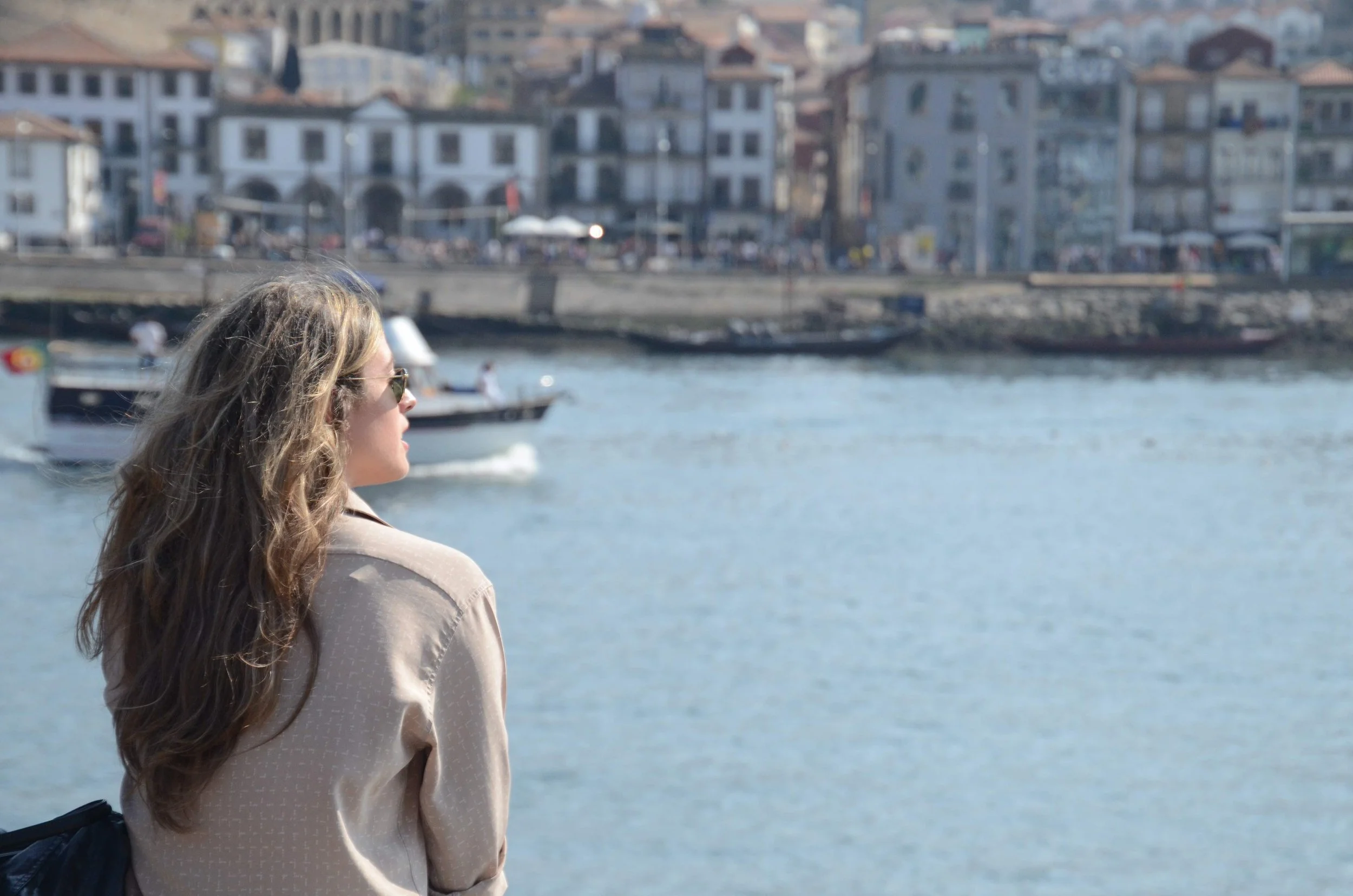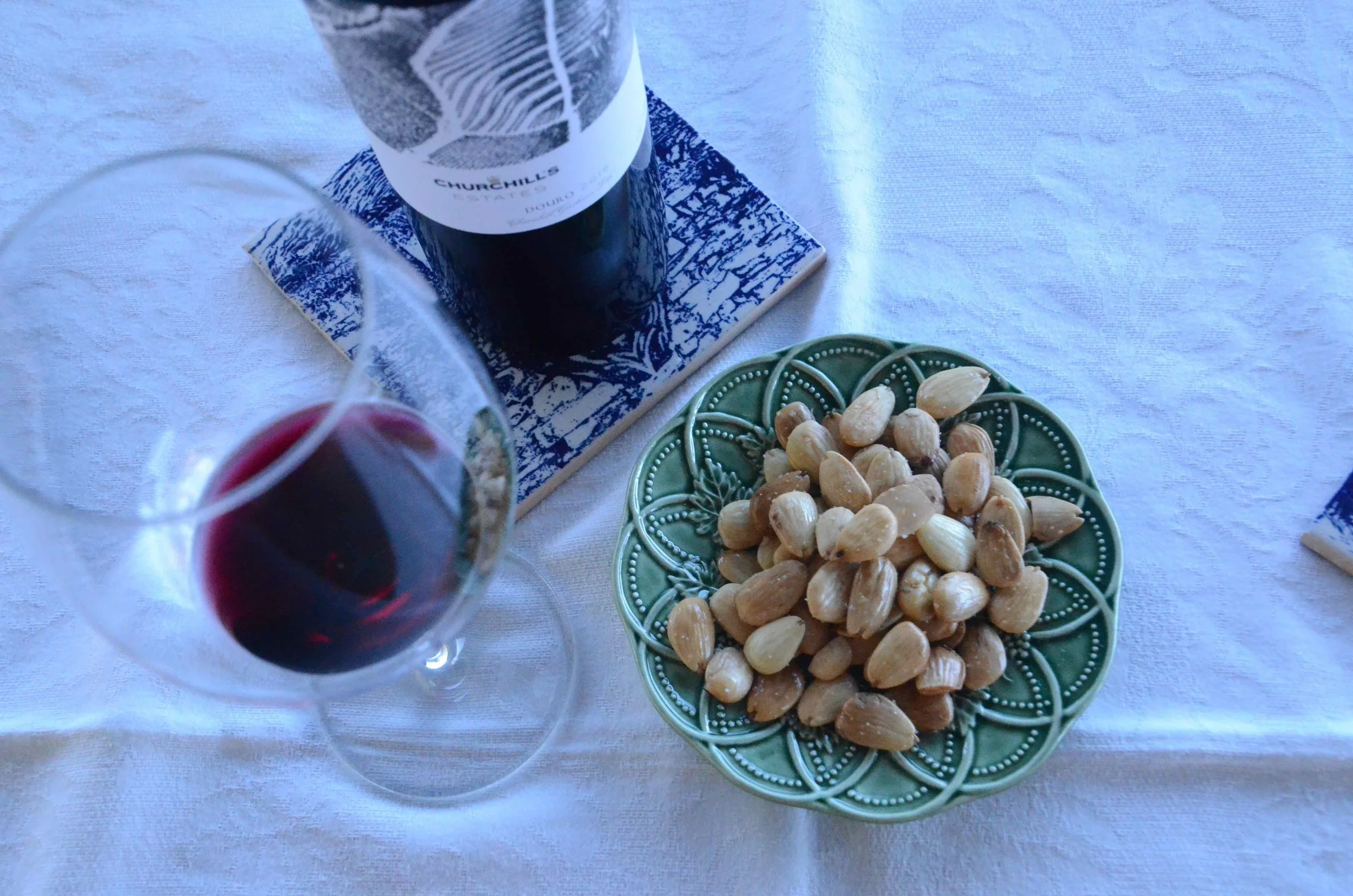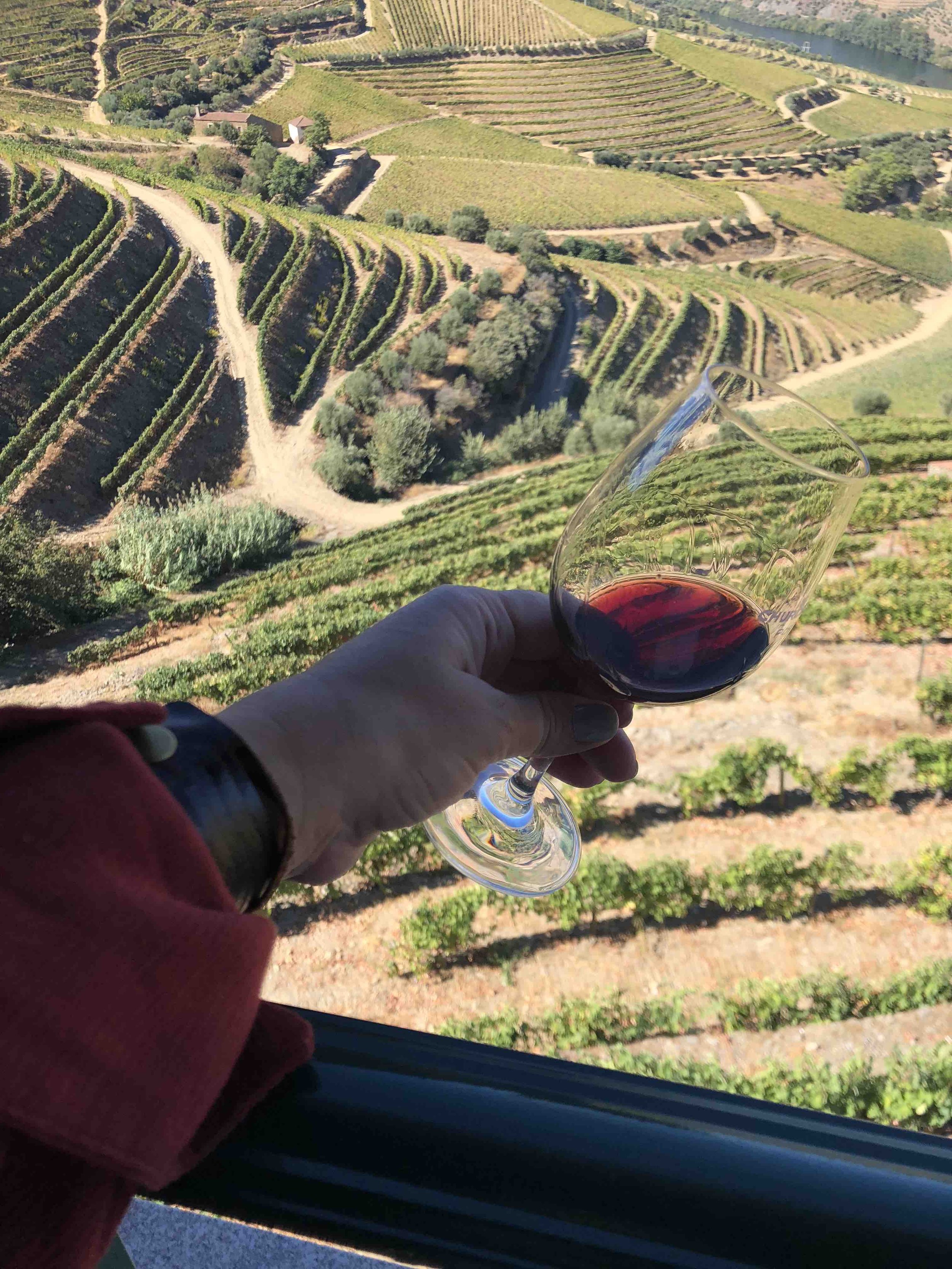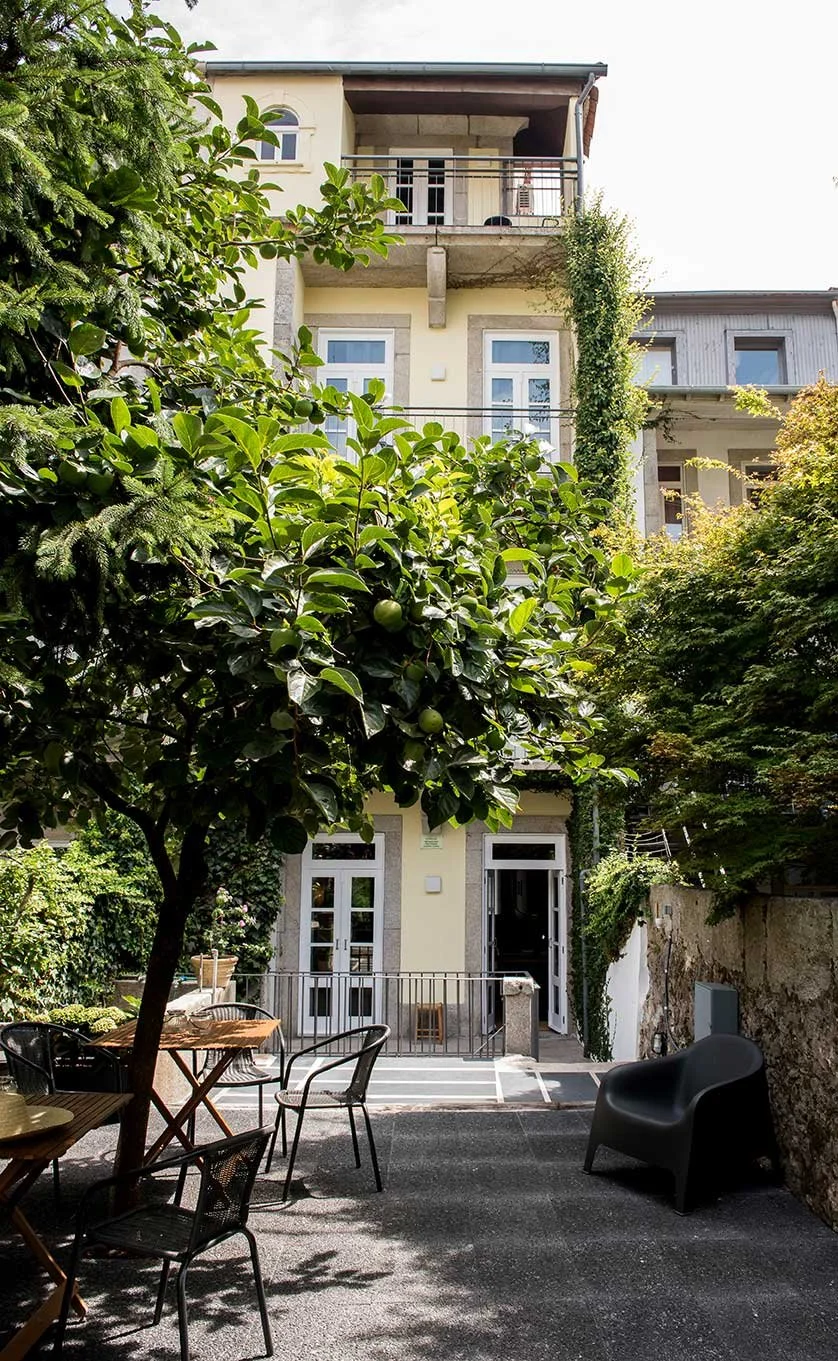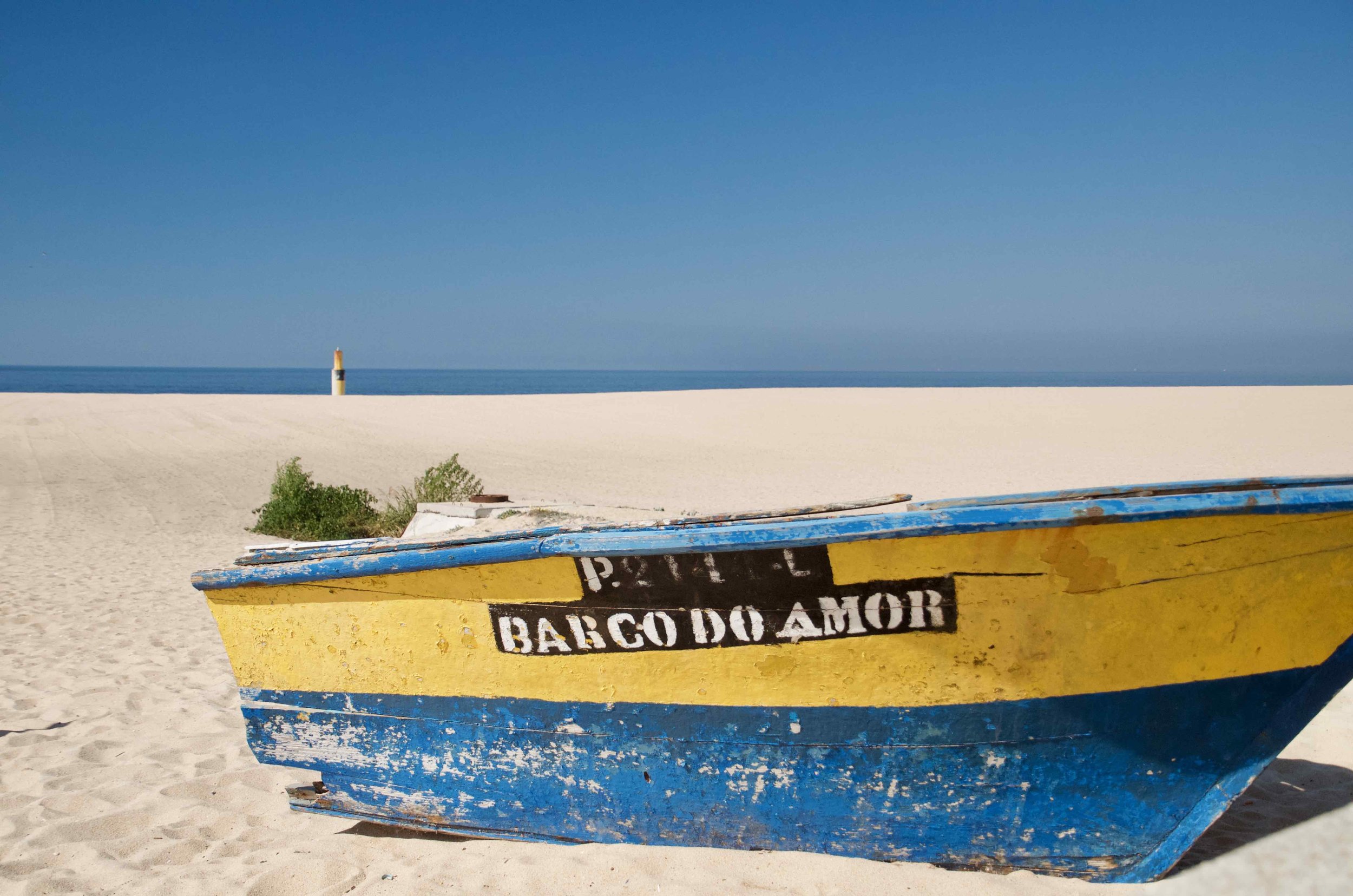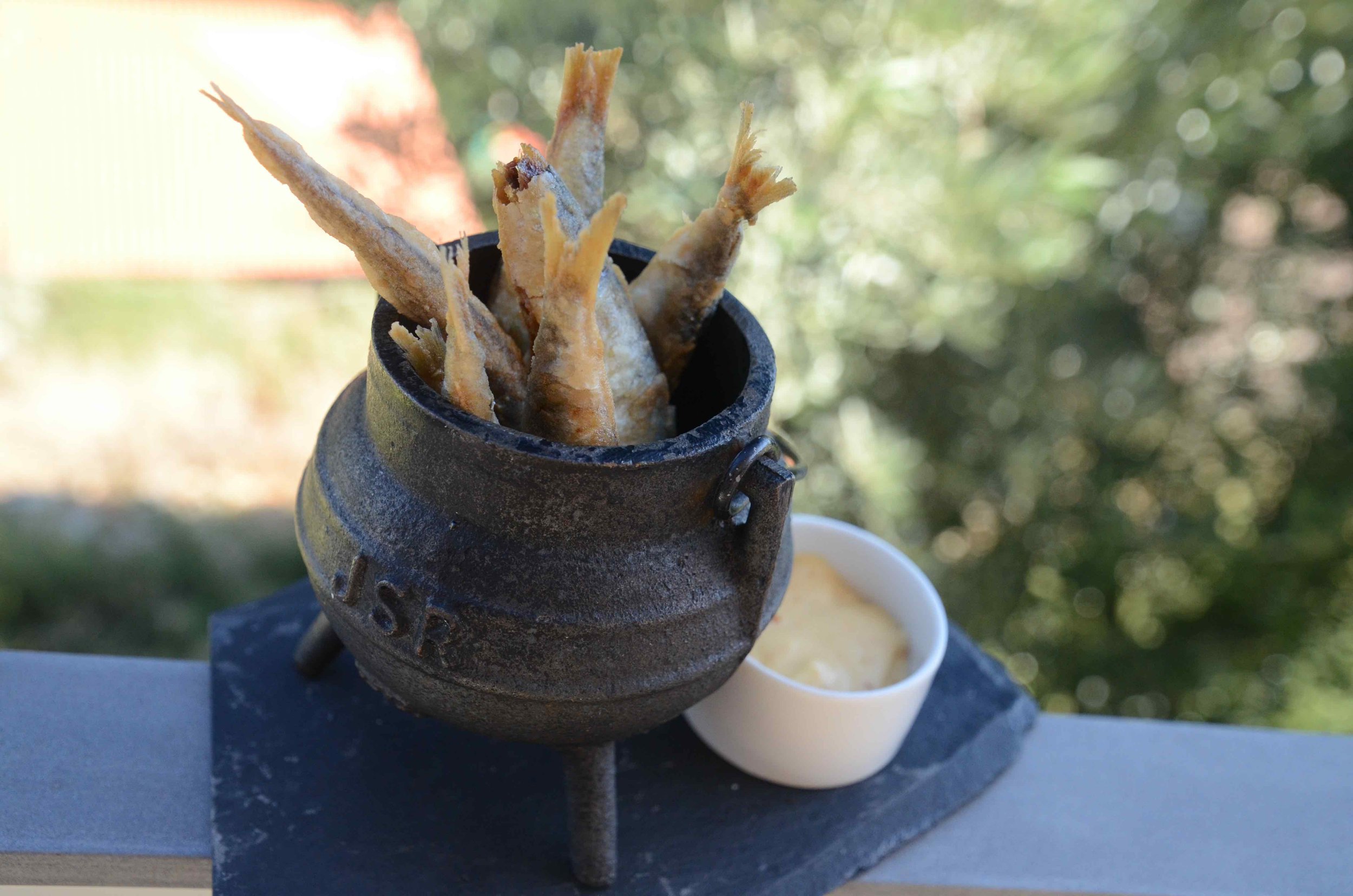Ready and Roam / Northern Portugal
When?
Shoulder Season Plan your visit for sometime in April - June or September, October. That is your best bet for nice weather and slightly less crowds. If you also plan to visit the country’s southern beaches, keep in mind that many of them close for the season at the end of September. That said, it’s quite warm in October during ‘harvest’ in the Douro Valley so if you want to do both you’ll need to time it just right.
Plan
Portugal is a small country with a lot to offer. We flew in and out of Lisbon directly from the United States. We took advantage of affordable interior flights on TAP airways as we explored the western and coastal areas of the country. Specifically, we combined our time time spent in the Algarve (2.5 days on the southern coast) and the area surrounding Lisbon (4 days) with extended time visiting the northern, riverside town of Porto (2.5 days) as well as the Douro Valley wine region (3 days). This guide follows my travels from Porto into the Douro Valley. If your time is limited, this magical region is where I’d tell you to spend your time. You can read the Roam Guide to the southern coast and Lisbon soon.
Rtip: If you have time, taking the 3.5 hour train ride from Lisbon to Porto, will give you a taste of all there is to see. Alternatively you can drive stopping at all the coastal towns along the way. Read our Roam Guide from Liz Banfield to see how she did just that.
While Porto is quite condensed and easy to navigate on foot, we did rent a car at the airport so we could later make the drive into wine country. I loved working with Sixt. Be sure to opt for the E-Toll Service option to help you breeze through the toll booths on the drive. While they are quite narrow, the roadways and tunnels into the countryside are well maintained and they drive on the right side of the road. The only challenge we found, was using the vehicle’s navigation system in Portuguese. You can certainly use Uber in Porto, although in some cases it’s just faster to walk.
Rtip: It’s worth an international cellular plan with unlimited data so that you can utilize google maps at will. This is true for driving as well as navigating the streets on foot.
Learn
Porto is a “port city” in every sense of the word. A gateway to the Atlantic for export out of wine country, known for what else but Port. The Douro river starts in Spain and ends in Porto. Here are a couple general things you’ll want to know heading into your trip.
“Table wine” simply means wine that’s unfortified. It’s the wine we’re accustomed to drinking. Not port.
The most common types of ports are Tawny and Ruby. The Tawny spends less time in a smaller oak barrel, where Port Ruby spends more time in a larger barrel. It’s fun to decide which Port you favor.
There is a formal institute that declares and approves a winery’s individual use of the term, “vintage year.” If it’s not approved as a vintage port, then the winery will produce a late bottle vintage or an “lbv.”
Both olives and grapes are harvested by hand starting at the bottom of the mountain on a more than 40 degree horizontal grade. They are harvested over a 3 week period of time, usually in October.
Stay
In Porto, A Bela Aurora / reservations
Located in the art district this boutique guest house was perfect. We stayed at the top of the townhouse in a beautifully updated, sizeable terraced room. A Bela is set up like a B&B with a garden patio, shared living room and only five private suites. The breakfast was delicious and offered us a taste of traditional Portuguese flavors every morning.
Rtip: A nice alternative to Bela Aurora is the 1872 River House. This property is a similar concept and a wonderful option if you prefer to be on the river.
Porto A.S. 1829 Hotel / reservations
1829 came highly recommended by our friend Leslie of Amusee after a recent trip to Portugal (you can read all about it on her website). While we did visit the property, availability kept us from staying there on the back end of our trip into the Douro Valley. It is right in the middle of town and overlooks the river gorgeously. Next time I would consider booking ahead and staying here.
Rtip: If you are looking for a higher end price point, Hotel Infante de Sagres, Porto is the most spectacular historic luxury hotel, recommended over and over again by contributors for it’s location and accommodations.
In the Douro Valley,If you’ve ever wanted to stay on a vineyard, this is certainly the place to do it. The views are breathtaking and you are always surrounded by an impressive selection of wine. Nothing wrong with that! If you are going to stay in the Douro Valley your options are almost exclusively “quintas” which translates in Portuguese to, countryside inn or villa.
Mornings on the quinta are incredibly peaceful. If it’s harvest, you’ll wake up to the sounds of active winemaking and you’ll find farmhands peppered on the steep rows of vines.
Quinta da Gricha Vineyard Residence / reservations
This particular winery quinta is unbeatable, and staying here was a spectacular experience that I will one day return to repeat. I promise you will feel at home here, enjoying the outdoor swimming pool and vineyard grounds. Breakfast is included, while your other meals are prepared exclusively by the private chef at the guest house. Dinner on property has a magical intimacy to it, and Churchill’s Port & Douro wines are offered at an affordable per person rate. The ensuite rooms are exceptionally large and of course the views are a dream.
“I was surprised at the amount of downtime I embraced, reading in the library and drinking wine in the golden light of sunset on the terrace.”
Rip: If Quinta de Gricha is unfortunately booked, you might also consider Casal de Loivos. A 17th-century estate near Pinhão with only six charming and affordable guest rooms.
Quinta de Marrocos / reservations
Once a Franciscan monastery, with it’s shaded facade and steep terraces, it is one of the oldest estates in the Douro. The owner is a 4th-generation port-and winemaker. We spent the afternoon here tasting, and we were able to tour the 17th-century manor house which now includes five modest guest rooms filled with a treasury of family heirlooms. A weekend stay includes all meals and exclusive access to the rural life of a winemaker.
Rtip: If you want to stay in a more traditional hotel, The Vintage House Hotel offers an idyllic riverside option but is not on a vineyard.
Explore
In Porto, It’s very easy to wander the day away, between where ever you are staying and a single destination of interest. Porto is charmingly small and exceptionally walk-able. While it is quite hilly, it’s very easy to navigate. The city’s vibe is effortlessly comfortable, yet historically refined. The river winds through scenic neighborhoods, under bridges, past cafes, musicians and street art. Below are the highlights as I found them to be.
“Time is a treasured thing. You can plan and take all the suggestions in the world but if you aren’t open to following the experience, you will miss out.”
Sneak Away
It may seem strange to start the ‘Explore’ section of Porto with the advice of trying to sneak away. But the point is listen to locals if your ready for an authentic experience, and if you have the flexibility don’t feel bad abandoning your plans. In our case, we snuck away to Praia de Aguda in Vila Nova de Gaia on the advice of a Portuguese winemaker. Our 1/2 day adventure to this iconic beachside community was an unexpected highlight. We did little more than walk the quiet boardwalk, seek out hidden seafood restaurants and photograph the fishing boats washed up on shore.
Rtip: If you end up here the best place to eat is at either Restaurante Zizi or Parque da Aguda.
Historic "Ribeira" Riverside
Follow the narrow alleyways and steep staircases to the historic “Ribeira” neighborhood. The entire area is an UNESCO World Heritage site with fantastic views of the Douro River and the classic riverside buildings. You can stroll the promenade listening to street performers and watching the birds, until the mood strikes you to sit awhile at one of the plethora of cafes to ‘people watch’ in the sunshine.
Rtip: take the funicular down to the riverside. It’s a unique experience and easy. When you are done exploring the Ribeira centre cross the bridge to a wine room in Gaia and uber back to your hotel from there.
Built in the late 19th century, the Dom Luís I Bridge is one of Porto’s iconic structures. The top of the Dom Luis bridge offers a spectacular view and the upper-level walkway is worth the considerable hike to access and cross.
Find a church (this won’t be hard and requires very little planning)
The Carmo Churches are the twin baroque style churches with the tiled facade, known as some of the most iconic in Porto. These two churches are separated by one of the world's narrowest of houses.
The Chapel of souls is also quite famous for it’s tiled exterior.
Near the Sao Bento Station, you'll find the Romanesque masterpiece Se Do Porto or the Porto Cathedral. This is one of the oldest sights in the city at almost 800 years old and without a doubt, quite a spectacular sight. Inside you’ll find the chapel of the holy sacrament, and an altar made completely out of embossed silver by one of the best Portuguese goldsmiths. There is a fascinating legend surrounding it’s preservation during Napoleon’s invasion in the early 1800’s.
Livraria Lello / website
This bookstore (not library, as I was quickly corrected) is a must see. It’s one of the oldest, not just in the city but in all of Portugal. You purchase your tickets inside around the corner from where the queue forms. Your ticket is redeemable for 5€ credit on any purchase and it’s best to arrive right when they open or 1/2 hour before they close.
Rtip: There are two things I would urge you to avoid in Porto. Sometimes it’s just as valuable to know what can’t be missed, as it is to know what to skip. First up on that list is Clérigos Tower. It’s a long way to the top, and offers just another nice view of the city. The second is Cafe Majestic. This 100-year-old cafe and it’s colorful history is neat but not worth more than a picture.
In the Douro Valley,Part of the adventure is just getting there, a little over two hours from Porto. Not going to lie, it can get pretty harried at times. About halfway through your journey the road ascends way into the mountains before returning to the riverside, where you’ll meet up with Portuguese truck drivers well versed in the steep, curved roadway. Eventually glimpses of the river give way to an expansive and breathtaking vista filled with endless rows of wine vines, rosemary bushes, and olive trees. On a warm and sunny day, the landscape feels nothing if not pretend.
“There is just something about the terraced vineyards on the hillside, picturesque vistas and historical stone wineries that will completely captivate you.”
Winery Visits
September is harvest season and when compared to America’s wine country, it’s profoundly still and very laid back. If you would like to spend a day wine tasting, I recommend you plan for only one or two vineyards a day. A mid-day winery should be selected for it’s ability to also offer a traditional meal with its tour and tasting. Many options are actually Quintas (mentioned above) so it’s very easy to linger the day away feeling at home.
I absolutely suggest you make time for Quinta de Marrocos. This charming estate (covered already in ‘Stay’) has 13 hectares of vineyards and offers a delightful lunch pairing in their traditional country kitchen. The rambling passion of our guide, the cold, cavernous wine rooms and the stone walls are something you can only experience for yourself. If you are able to, try to request a tour with the owner, Cesar who speaks English, French and Italian.
Even if you are not staying at Quinta De Gricha you really must seek out their scenic vineyards, and breathtaking landscapes to picnic and tour the traditional process of winemaking. We were fortunate enough to have met founder John Graham during our visit. John was immediately accessible and gracious to us. When we asked about his experience as a winemaker he had this to say,
“'The most important thing for a master winemaker to have is a good memory. To remember tastes over time.” - John Graham
I would also recommend scheduling a visit to Quinta das Carvalhas where you begin riverside and head up hill to what they claim is the highest and best view in the Douro. If you book the vintage tour you’ll be accompanied by an expert in viticulture who will fill you in on more than you want to know, especially if you are traveling with Brazilian tourists, known for their endless questions. At the top, you’ll find an abandoned property that they hope someday be home to a place you can enjoy both a glass of port and the incredible view.
While I couldn’t get in to Quinta do Crasto I adore their wine and was certainly disappointed to miss out. Similar circumstances kept me from, Quinta do Monte Travesso, also on my list for it’s beautiful manor house and farm where, at least in my correspondence, I found a warm and personalized reception.
I was underwhelmed by Quinta de la Rosa, both by the knowledge provided at the tasting and the service at the restaurant.
Okay I have to say it’s not wise to navigate the single lane hillside while wine tasting. If you are looking to arrange a driver for the day, one can be secured for around $250. You’ll want to do that ahead of your visit directly with the tourism manager at your Quinta, who will also secure any dining reservations for you off property.
Rtip: if you want to save on transportation costs, leave your rental at the Quinta and pre-book a taxi to drive you to your first wine tasting. At that point you can ask them for a business card to call when you need them to return. They are usually happy to shuttle you around occasionally between fares throughout the day and this will save you quite a bit of money.
Sail on a boat from Pinhao
It’s a unique experience to take in the valley, sipping port on the river. You’ll sail past scenic vineyards and wine farms not easily accessed by car. You can book a ride on a traditional Portuguese wooden cargo boat, called a Rabelo, used to transport wine barrels for centuries along the Douro River. Next time I would customize my time on the water privately through Pipadouro, which runs two beautifully restored 1950s wooden launches from the pier at Pinhão. It is here in Pinhao you will find a charming riverfront promenade, a beautiful train station decorated with blue ceramic azulejos, and a Talho Qualifer (or butcher) who offers a great assortment of picnic fare and whose sausage has been known to cure cancer.
Devour
The Atlantic Ocean near Porto is filled with amazing octopus so you will likely find it on every menu and the cod is a bit of a local delicacy. Be sure to try the traditional Portuguese sandwich, ‘Francesinha’ which originated in Porto. The locals all said the best one is at Cafe Santiago. Oh, and you’ll find that food is more expensive on the south side of the river in Gaia. Just try to hide from the pastries.
In Porto, Hidden on a street by the same name, this tiny spot is quite a treasure. A simple menu of seafood specialties and traditional meat dishes they also offer some wonderful local wines. If you can, order the deliciously prepared clams or the açorda de marisco which is a traditional Portuguese seafood stew. Ridiculous.
We uber’ed to this spot, which is quite hidden, and if not persistent in your navigation you will miss it. Filled with locals celebrating birthdays and girl friends chatting over pizza, this felt like a neighborhood joint.
We enjoyed a leisurely afternoon here on the patio above the "Ribeira" Riverside. It was a perfect perch for people watching and a few drinks. There is a cozy indoor space that if it’s busy offers a nice energy but we preferred the sunshine and and tapas outdoors. Favorites included the baked cheese and the roasted padron (shishito) peppers.
Brunch is arguably my favorite meal of the day, and while it’s admittedly more of an American tradition, this place knows what it’s doing. The Zenith cafe was located very close to where we were staying and if breakfast hadn’t been part of our meal plan I would have returned for a second go around. The only caveat being that it’s not the place to go if you are after a traditional cultural experience. It’s more of a welcome taste of home, and after three weeks in Portugal and Morocco, I had had of plenty of authentic meals.
In Douro, The Vintage House Hotel
This awesome spot was suggested by Quinta Do Panascal. You’ll want to get a reservation early as they often sell out in their efforts to accommodate their house guests. The views from the well-kept garden and the shaded riverside patio are perfect for enjoying a traditional Portuguese meal.
We had a reservation but arrived early so that we could enjoy the patio before dark. True to it’s name, we sat on a dock. The service was the best, but also the most formal, of our visit to Portugal. While the food was delicious, it wasn’t stand out. I enjoyed the Turbot, my standby on this trip, otherwise known as the “ugly fish.” It was served beside corn three ways. My dad ordered lobster with sea fish sauce over rice. We started with a tasty crab dip and burrata salad with tomato caviar. There is a market near the train station in Peso da Régua that peeked our interest and next time, I’d look into that further.
Rtip: Tipping is not compulsory, but 10 percent is considered the norm. Portugal uses Euros.
Sip
Being from Minnesota I love craft beer. I’ve tasted in Copenhagen, Prague and now I can say Portugal. Sovina (Portuguese for cheapskate) is brewed simply, with water, yeast, malt, and hops, and the company boasts a complete lack of preservatives. All of their beer spends time in Port barrels and they even sell ‘beer soap.’ This shop is worth a visit albeit a bit on the outskirts.
On the south side of the Douro River you’ll find Vila Nova De Gaia. This is where all of the port from the wineries in the Douro Valley store their barrels to age (port does not age in the bottle). For this reason, it is here you will find many of the big tasting rooms.
#Rsommsays her favorites include Augusto's, Grahams Port Lodge and the oldest of port wine houses, Kopke — where we found ourselves very happy.
Rearview
Just east of the Douro Valley, you’ll find an abundance of thermal hot springs, small Portuguese villages and a European laissez faire that embraces a true spirit of relaxation. Next time, I’d 100% spend more time slowing down in the Douro Valley and then at the wellness focused resort, Longroiva Hotel & Spa near the border to Spain.
Take
I was sure to pack a layer that matched everything and a comfortable pair of shoes. I also brought several comfortable midi dresses, a jean jacket and a wrinkle-free pair of black travel pants (I have several). I’m super picky about sunglasses because they spend an equal time on my head as they do on my face, and I don’t like them getting tangled in my hair. Strange as it sounds you’ll want several packs of Kleenex, as I found those to be scarce in the country. Whenever I expect to do a lot of shopping, I always pack a luggage scale and my "go to" compact duffel from Paraval that converts into a durable second checked bag. Columbia makes an equally nice version as well.
Rtip: Anytime you are traveling abroad I suggest you secure travel insurance and I’m happy to help with a quote.
Shop
Wine
I only ever purchase wine that I can’t buy in the states. I try to select a few special bottles I’m particularly drawn to the memory of tasting. I would also suggest you limit yourself to 9 bottles in your checked luggage, assuming you have room. You likely won’t get flagged by customs and border control or risk paying a duty with less than 12 bottles. In Portugal, I shipped from three different wineries and in all cases I was required to ship in combinations of three and I was limited to orders of twelve. If you want to ship more than 12 bottles, it’s considered a new order so there is no cost savings in doing so. Shipping includes transportation, insurance and taxes but is quite expensive. Specifically it was 60€ for 3 bottles, 98€ to ship 6 bottles and 196€ for 12 bottles, plus the cost of the wine.
A Vida Portuguesa / website
I loved this high-end lifestyle shop near Livraria Lello. I literally got all my shopping done there, and just about every traveler is bound to find something to treasure from their trip. From colorful artisanal blankets, ceramic sardines, Portuguese tiles, handmade soaps, and gourmet jelly, this shop beautifully curates made-in-Portugal items both traditional and modern. This is the place to buy backpacks from Portugese brand Kraxe-Wien, perfect for bringing home all your souvenirs.
Rtip: If you are using a credit card, make sure you are paying in euro not your own currency so that you are not subject to the store’s decided exchange rate.


